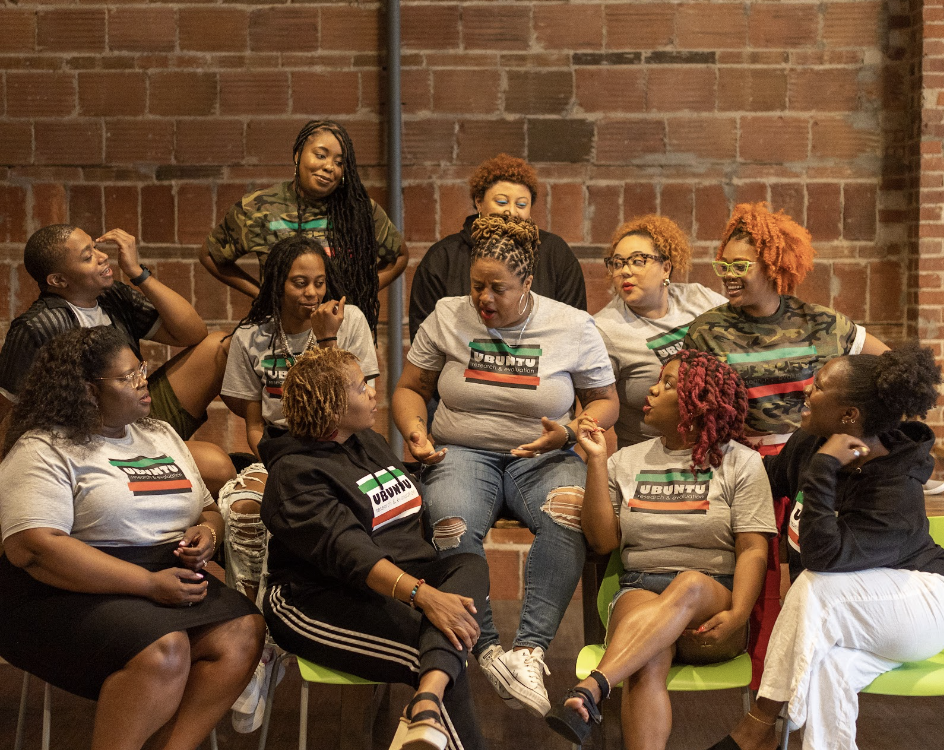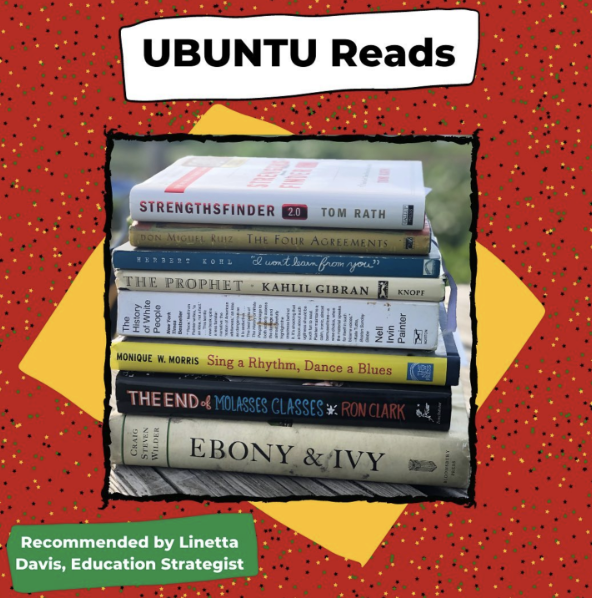Hello, Evaluation Siblings!
I am dr. monique liston, the founder, Chief Strategist, and Joyful Militant at UBUNTU Research and Evaluation. We are a Black-founded, Black-owned, and Black-operated afro-futurist learning organization based in Milwaukee, Wisconsin. Wherever I go, UBUNTU goes, so I speak of us through this blog!

As an afro-futurist learning organization, we engage in collaborative study around the concepts of equity, decolonization, and liberation on a weekly, if not daily, basis. We read books, share articles, watch lectures and engage in critical discussion about our practice. Most importantly, these concepts have not fully materialized in meaningful and transformative ways for Black folks globally. We refuse to apologize or provide contingency about our collective desire for the unmitigated respect, fulfillment, and protection of the dignity of all Black people. Here is a reflection of where our learning has landed our team most recently:
Equity is a step, not a goal. Arguably the sexiest word in the human services sector, equity describes strategies and plans often touted as lofty and unachievable goals for an organization to obtain. Instead, we argue that equity is the starting point for the work we must do to address the harm caused by persistent systemic oppression. Equity isn’t just about representing diverse social groups; it is about challenging the role of power in the design, praxis, strategy, and embodiment of our day-to-day working lives.
Decolonization is not a metaphor. In solidarity, we utilize the reminders given in Tuck and Yang’s 2012 article Decolonization is Not a Metaphor in Decolonization: Indigeneity, Education & Society. The process of decolonization is inherently U N S E T T L I N G. We need to be intentional about not describing a change as decolonial if it does not disrupt settler colonialism.
Liberation is our accountability metric. We believe in freedom as yet unknown — one where we construct a social work that is not currently or formerly defined by the systemic oppression of racism, sexism, fatphobia, queerphobia, and other -isms. Afrofuturism asks us to hold in our evaluative thinking accountability to liberation, not simply better than this current moment.
Hot Tip:

Engage in study groups. While reading, writing, and studying on your own can produce excellent outcomes (good grades for the non-evaluators!) in school, when it comes to applying the concepts of equity, decolonization, and liberation in your work as an evaluator, you need the support and critique of others to grow. A great evaluator needs to move from being great at school to being a fantastic student who learns new ways of thinking not just for knowledge’s sake but for individual and collective growth.
Rad Resource:
If you haven’t already, check out @ubunturesearch on Instagram for study suggestions!
Lesson Learned:
Build weekly (if not daily) study time into your weekly schedule. The demands of capitalism are high and relentless; if your calendar and workflow do not already include time to focus on deepening your knowledge around equity, decolonization, and liberation – it won’t happen. Protect our future by protecting your time today.
Do you have questions, concerns, kudos, or content to extend this aea365 contribution? Please add them in the comments section for this post on the aea365 webpage so that we may enrich our community of practice. Would you like to submit an aea365 Tip? Please send a note of interest to aea365@eval.org. aea365 is sponsored by the American Evaluation Association and provides a Tip-a-Day by and for evaluators.
